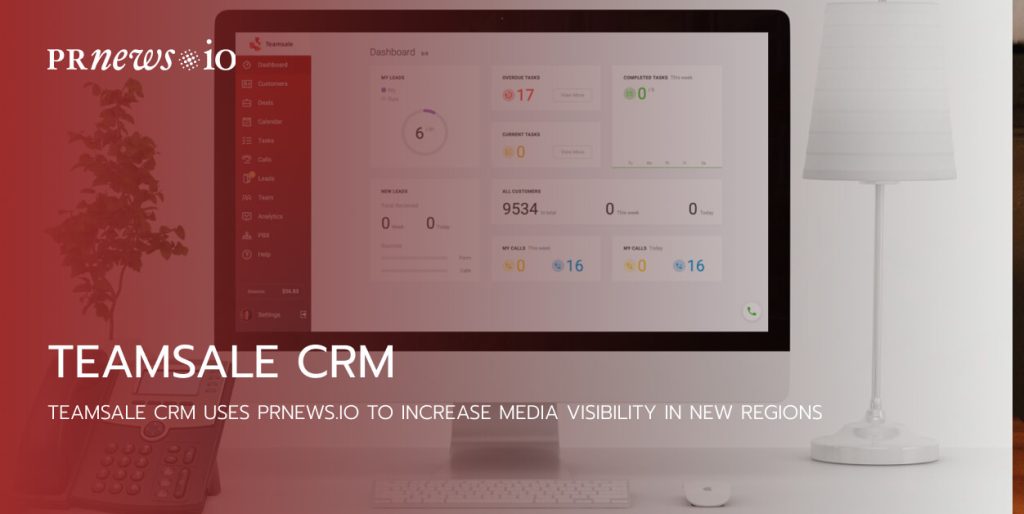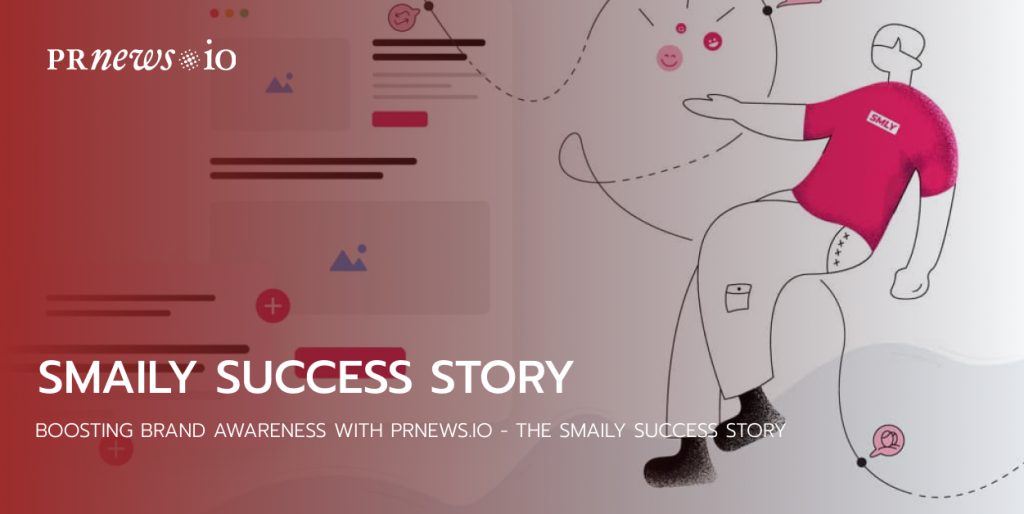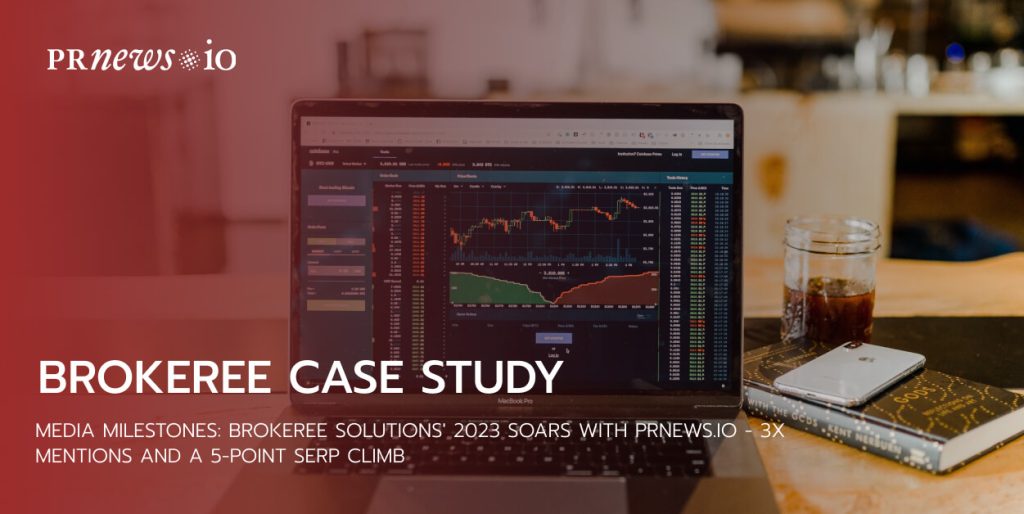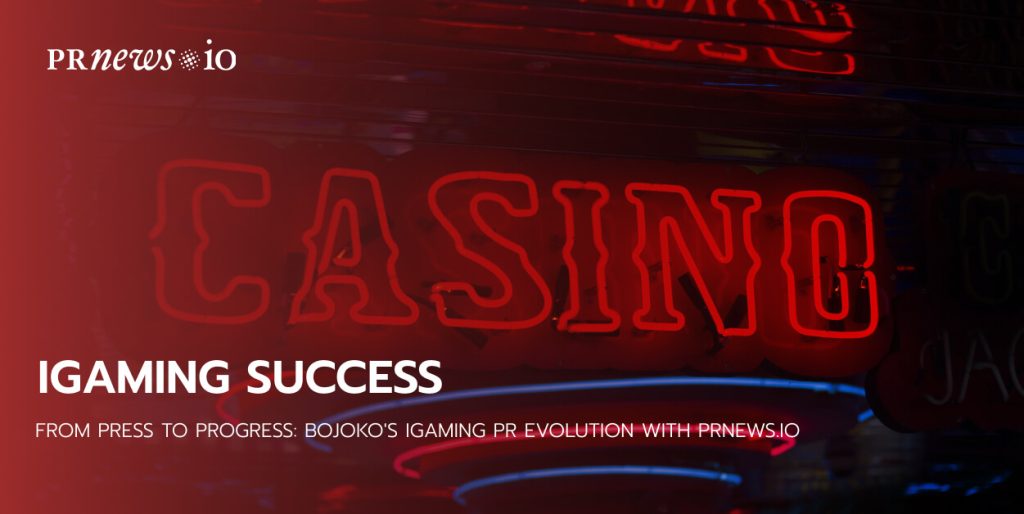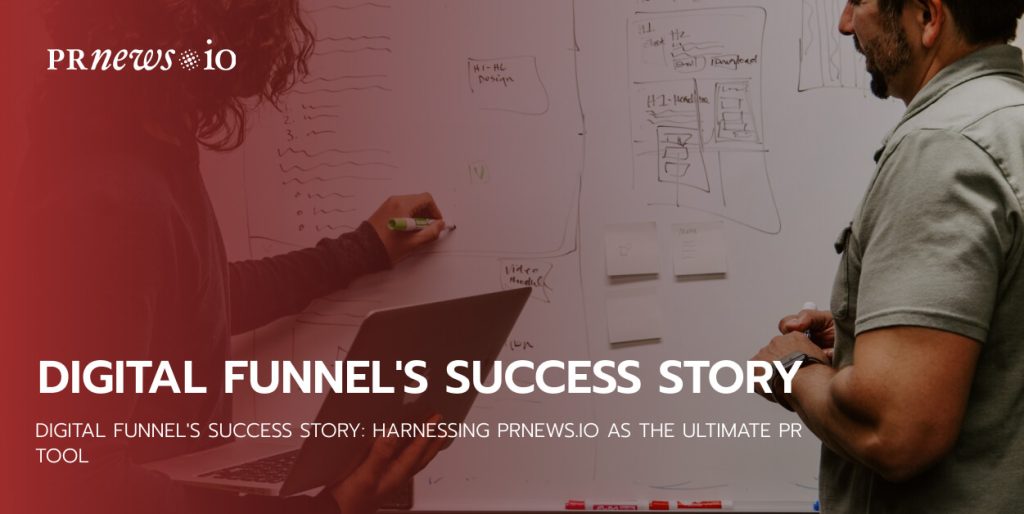PRNEWS.IO is thrilled to initiate a fresh series of interviews highlighting accomplished women making significant strides in the PR industry. Given the rising statistics indicating a growing presence of women in PR positions, our aim is to acquaint you with these influential leaders who are currently shaping the PR landscape. Today, we feature an exceptional guest, Anastasiia Polska, whose wealth of experience, professionalism, and compelling PR cases is truly remarkable.
In this interview, Anastasiia shares insights into her experiences, lessons learned, and the creative campaigns that have defined her career. From building a personal brand to navigating the challenges of leadership as a woman in the PR industry, she provides valuable perspectives. Additionally, she sheds light on her involvement in industry associations and the role they play in shaping the future of the creative industry in Ukraine.

Unveiling the Journey of Anastasiia Polska
PRNEWS.IO: Having started your career in journalism and even leading the publication of Kharkiv Post, what motivated your transition to the field of public relations? How did your journalistic background contribute to your success in PR, and what advice do you have for individuals contemplating a similar career shift?
Anastasiia Polska: In my third year of university, with little practical experience beyond a single article in a student publication and a brief internship at a Lviv editorial office, I took a leap and interviewed for a position at Kharkiv Post—not as a journalist but directly for the role of editor-in-chief. At just 18, fueled by determination, I located the newspaper owner’s contact on social media and presented my vision for the publication’s future on the same day—marking the initial step toward my dream career.
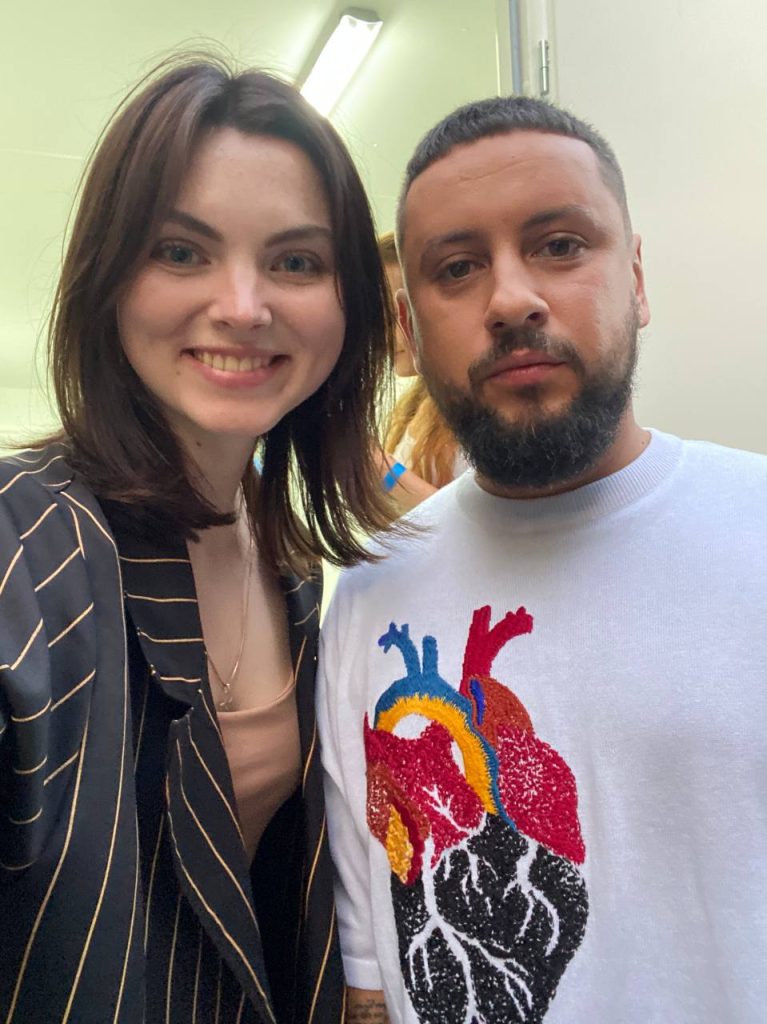
Balancing work with a full day of philology studies proved challenging, but my passion for the job provided the strength needed. Within four months, I had forged a partnership with NUSH, then a promising startup, and published a special issue on education. This publication, featuring a photograph of my alma mater, Karazin Kharkiv National University, transcended Kharkiv and reached audiences throughout Ukraine.
My journey led me through various online media outlets, enriching my experience and broadening my network. Zhenya Kostina, my former editor-in-chief and now the head of “Zaborona,” recommended me to “Obozrevatel.” Subsequently, my progression from a simple editor to the head of the lifestyle section was swift. Engaging in captivating interviews with celebrities, influencers, fitness trainers, and stylists became a routine.
As PR professionals approached me, and I initiated interview requests with them, I recognized the power they held—deciding the narrative surrounding individuals. PR emerged as an indispensable element for any organization, with its pivotal role in operational success. Realizing the limited growth prospects in journalism, except for creating my own media, I found a new realm of opportunities in PR. This realization prompted me to embark on a career change.
My journalistic experience taught me the importance of persuasively conveying an idea to the audience, which became my “springboard” into PR. For those currently contemplating such a career change, I want to say: be honest with yourself in assessing your strengths and aspirations. It’s crucial to be flexible in your thinking and ready for new challenges, as PR and journalism often intersect, but each field has its own specifics.
PRNEWS.IO: Having previously worked as a Public Relations Specialist at Badoev ID, under the leadership of renowned director Alan Badoev, could you reflect on the experiences and lessons you gained during that collaboration? In what ways did working in such a creative environment shape your approach to public relations and creativity?
Anastasiia Polska: I was hired for the position of Junior PR Manager primarily because of my ability to write quickly, create compelling headlines out of thin air, and, of course, thanks to the connections I had with former journalist colleagues. These connections played a crucial role, as individuals in journalism often change jobs but stay in the profession. Therefore, it’s essential to have a ‘warm contact’ for quick information dissemination. For instance, Vasylysa Stepanenko, now a correspondent at the Associated Press and co-author of the film ’20 Days in Mariupol,’ nominated for an Oscar, was once my protégé at Kharkiv Post. There, I imparted the art of writing engaging texts to her. Such connections are gold in a PR career and in life in general.
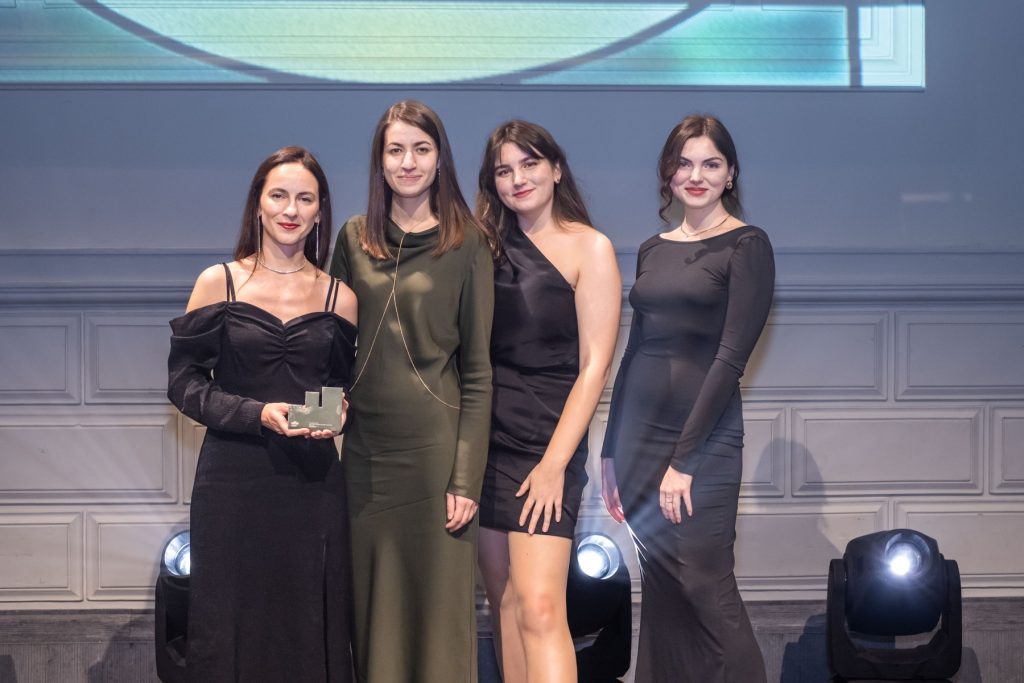
As for the atmosphere at Badoev ID, while Alan Badoev was the creative force, his primary focus was on creativity rather than managing the agency’s day-to-day affairs. This responsibility fell to Anna Kovalyova, the CEO. She determined which projects we undertook and shaped the overall team atmosphere. Working there taught me the skill of managing multiple projects simultaneously, such as developing a strategy for the ‘Nasha Ryaba’ brand, positioning a future business center in Kyiv, and deciding on the celebrities to invite to a private party for the 80-year-old grandmother of a Ukrainian oligarch in Germany.
Engaging in a variety of projects allows for the acquisition of diverse knowledge, fostering the ability to generalize effectively, as opposed to focusing too much on a single field. For instance, doing PR for completely different brands and tasks simultaneously.
PRNEWS.IO: How do you view the significance of a PR professional developing their own personal brand, and what strategies do you employ to enhance and maintain yours?
Anastasiia Polska: For a long time, I built my personal brand intuitively, and only over time did I start to approach this process in a structured and conscious manner. It’s not just about connections, as mentioned before, but also about being known—about your name being easily found on Google, making journalists and editors more likely to say ‘yes.’ They’re not just agreeing with you; they’re also open to further collaboration. This turns every pitch, release, and publication from an exhausting climb up Everest into a pleasant stroll.
Regarding my strategies for personal brand development, I focus on lectures (the first of which I gave at the invitation of my journalism mentor at Karazin University), articles and posts about PR in various media and social networks, as well as networking. While offline events in Kyiv are not frequent nowadays, when they do happen, they always draw full houses. All of this not only expands my circle of acquaintances but also opens new horizons for my career.
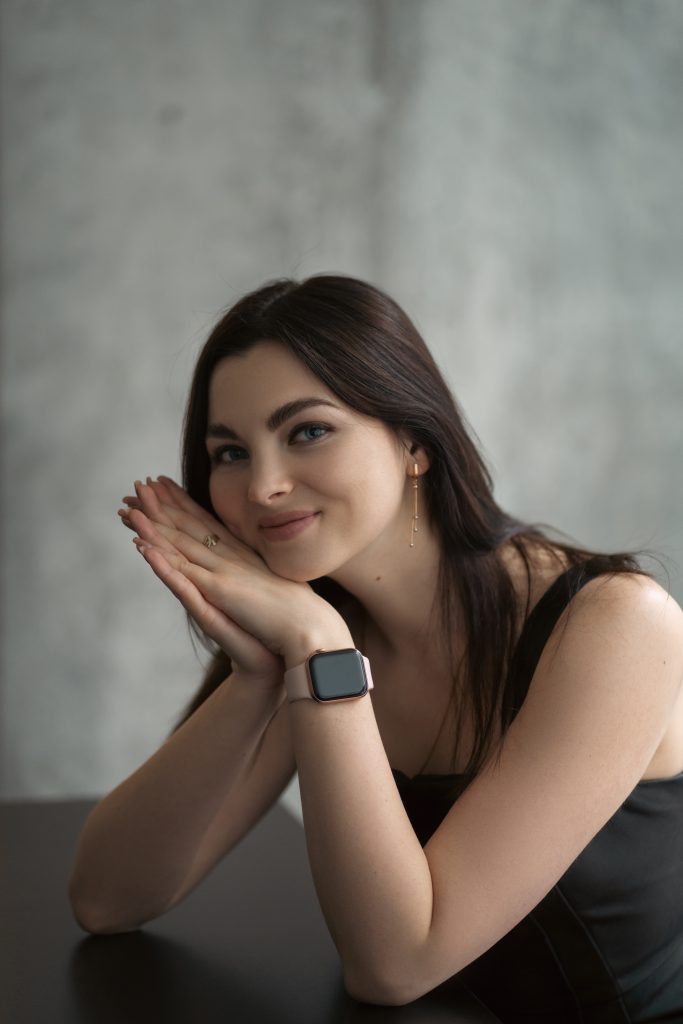
Perhaps in the future, I will launch my own website and YouTube channel, and conduct open online webinars.
PRNEWS.IO: Could you share insights on how PR specialists can successfully build and maintain relationships with high-profile individuals, and any memorable experiences you’ve had in this regard?
Anastasiia Polska: Here’s what I’ve come to understand: it doesn’t matter who you’re dealing with—be it a president, a world-famous star, or a blogger—at the end of the day, they’re all just people, like you and me. So, there’s no reason to be shy or nervous. Let me share a cool example with you: recently, I was having breakfast at Namelaka, my favorite spot in Kyiv, and guess who walks in? Vasyl Baidak, the famous stand-up comedian, with his team. I simply approached them, smiled, and introduced myself. Just three minutes, and you’ve already warmed up a contact and are ready to pitch with the line ‘remember, we met…’. The key is not to be afraid and to communicate as equals.
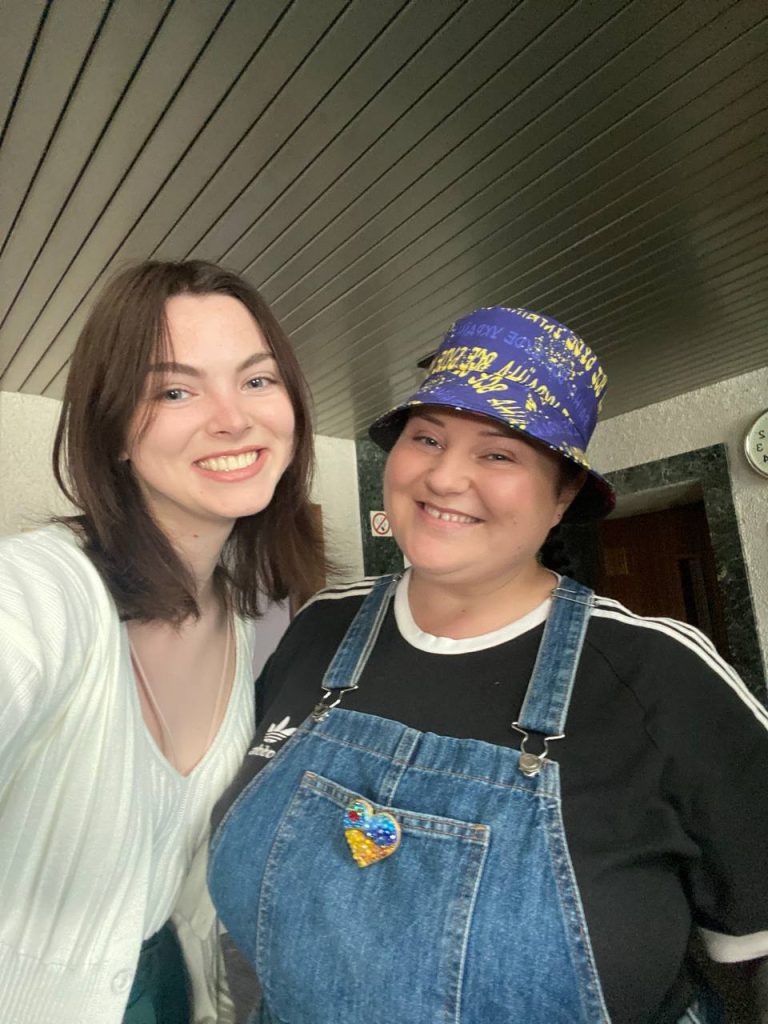
As for how PR professionals are viewed in our country, they are often perceived as having a lower status. However, that’s a big mistake because PR professionals often wield more power and possess broader connections. We can either boost or ‘bury’ a reputation, so recognizing your own strength is the first step towards success.
When it comes to building and maintaining relationships, you need to be purposeful. If you can arrange a successful collaboration that benefits both parties, that contact will be ‘in your pocket’.
I remember setting up a collaboration with Zhenya Yanovich, a well-known screenwriter, actor, and YouTuber. The plan was for him to support our campaign for one of our clients—a non-profit organization. But then a scandal erupted with his colleague from the show “Therapy,” Spartak Subota, and our client decided to back off to avoid negative impacts on their reputation. I had to explain all this to Zhenya, and we continued our communication through personal video messages. I supported him and offered my help as a PR professional. This move helped maintain our relationship, and when the scandal settled, we resumed our collaboration, and Zhenya eventually featured our campaign in his stories.
PRNEWS.IO: Where do you suggest PR professionals look for opportunities to expand their contacts, and how do you recommend building an effective and diverse database of contacts for successful campaigns?
Anastasiia Polska: The key is the art of networking and establishing personal connections with journalists. Look for the editors of media outlets that interest you on Facebook and LinkedIn, and become an active follower: like their posts and leave comments. This will help you be remembered, even if personal communication is not yet possible. And here’s another trick: invite chief editors for coffee or to events that might interest them. Have theater tickets? Great! No culture editor can resist such an offer, and it will create a certain level of gratitude from them towards you.
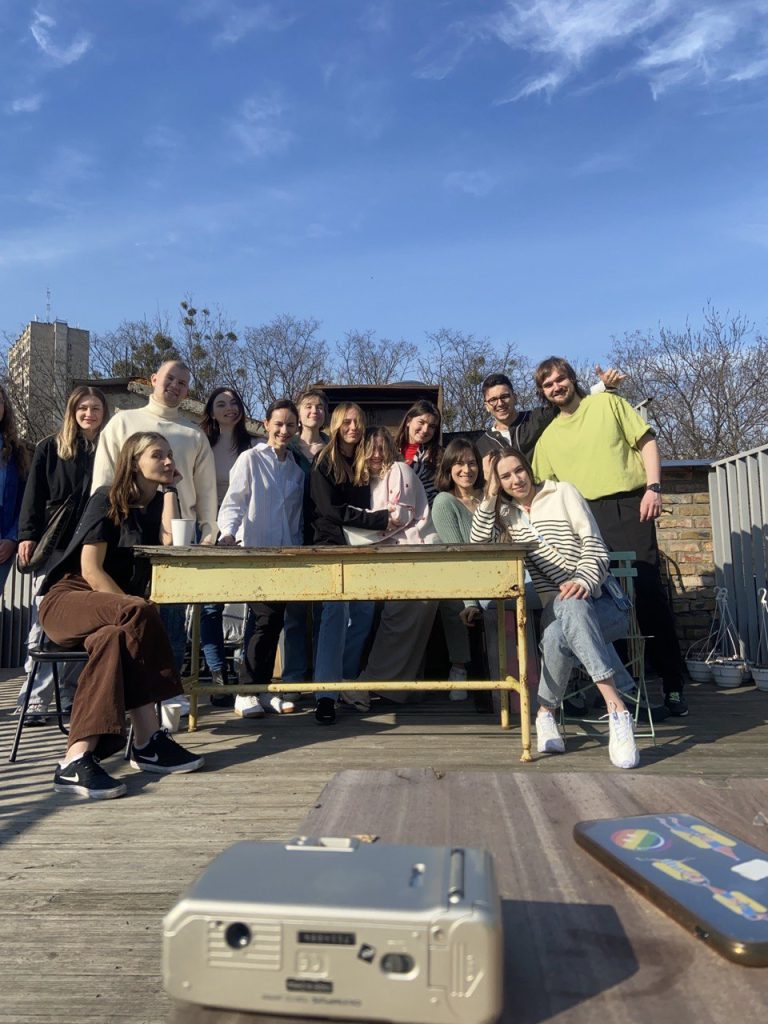
PRNEWS.IO: Anastasiia, could you share insights into one of the most creative PR campaigns you’ve implemented?
Anastasiia Polska: This is the most challenging question 🙂 Over the past year, our agency, Bickerstaff.482, launched many genuinely creative campaigns for both brands and social projects. Notable examples include the 50-kilogram book ‘Crime without Punishment (New Russian Classic)’ with 6000 pages, detailing around 6000 cases of Ukrainian children being kidnapped by Russians. The book began to self-promote after its presentation in Europe, leading to our monitoring of publications and social media mentions going out of control; we couldn’t keep up with collecting all the mentions.
However, from a PR perspective, the most creative campaign was for the spoonable kefir, GoKarpaty, for which our team developed a variety of content adapted for different segments of the target audience.

We started with an animated video. The task was to tell about the unique property of kefir—its “spoonability,” so we decided to tell the love story of Spoon and Kefir and sent them on a journey through the worlds of 8 most popular cartoons and anime. It was targeted at multiple audience segments, and there was something for every segment to resonate with: specific references and storytelling, irony, humor, etc.
We also launched radio ads in the style of old announcements titled “Kefir Seeks Spoon,” initiated additional PR activities in entertainment communities: launched memes about kefir and distributed them through meme publics on Telegram, which channel authors gladly accepted as something new and original.
We officially registered the NGO “Scientific Research Institute of Kefir Spoon of the Ukrainian Academy of Sciences named after G.O. Karpaty.” Based on this “institute,” we patented the kefir spoon and presented it on YouTube in the style of Apple immediately after the official presentation of the new iPhone 15 in the world.

In addition, we developed a separate website for pre-orders of Kefir Spoon™ and Kefir Spoon Pro Max™. The giveaway of the spoons was announced on the GoKarpaty brand’s Instagram page. After a few days, we had to communicate that the giveaway was stopped, as there were 5 times more orders than spoons.
That’s how situational it turned out.
PRNEWS.IO: As a member of the Creative Industries Association of Ukraine (CIAU), how has your involvement in industry associations contributed to your professional growth, and what role do you believe such organizations play in shaping the future of the creative industry in Ukraine?
Anastasiia Polska: I can definitely say that the most important thing my membership in the Creative Industries Association of Ukraine (CIAU) has given me is confidence in what I am doing. Being recognized by others and invited to join such an organization has instilled in me a belief in myself. This not only opened up opportunities for additional lectures but also motivated me to start writing expert articles and further promote my personal brand.
CIAU is a non-profit organization focused on the development of creative industries in Ukraine. Its role is to promote Ukrainian creators abroad, initiate its projects, and foster creativity in Ukraine. I believe that creatives should join such organizations and communities to collectively accelerate the development of the industry in the country.
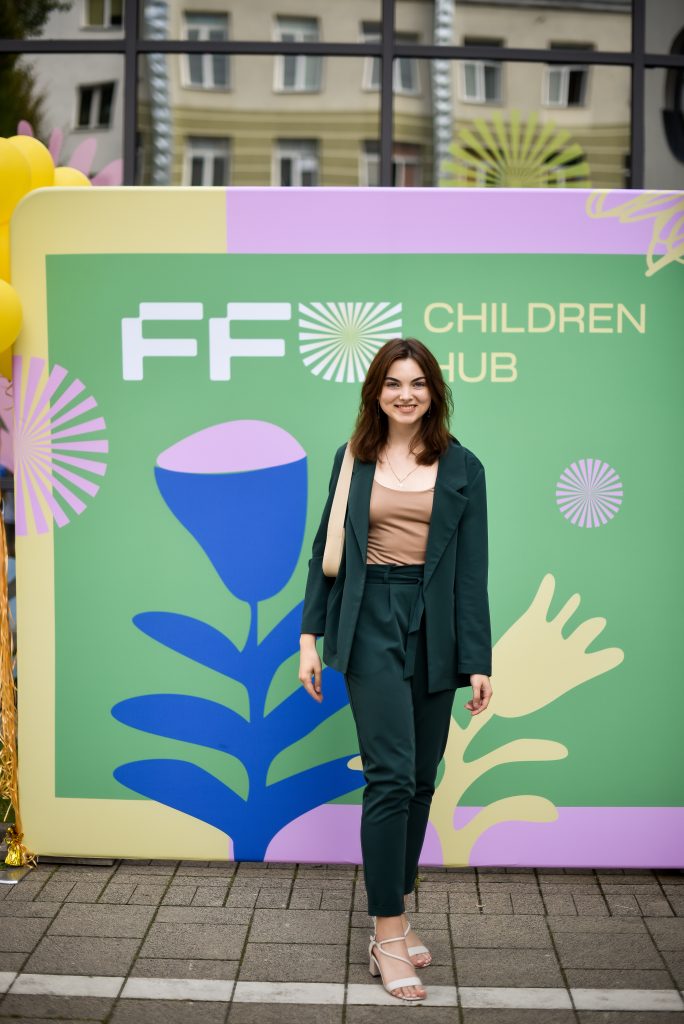
PRNEWS.IO: As a prominent figure in the PR industry, especially in Ukraine, what challenges have you faced as a woman in a leadership role? How can the PR industry foster more inclusivity and equal opportunities for women professionals?
Anastasiia Polska: “I was fortunate to join Bickerstaff.482 because it’s the first campaign where I didn’t experience any signs of gender inequality, neither in salary levels nor in the way management treated me. I think the creative industry in Ukraine is developing rapidly because agencies are not merely competing with each other; they are competing for the right to be the best in the world. The global standard is precisely equality and respect for every team member, regardless of their position.
At Bickerstaff.482, we believe in fostering a culture where each employee receives a highly personalized approach, setting us apart as an agency. Our policies and benefits prioritize the well-being and individual needs of our team members.
I believe the PR industry can contribute to inclusivity and equal opportunities for women professionals by supporting female leadership, developing mentorship programs, providing grants for women, and initiating efforts aimed at reducing the gender gap in our field.
PRNEWS.IO: Working in the creative industry during challenging times, such as wartime in Ukraine, must pose unique challenges. How do you navigate these difficulties, and where do you find the strength and inspiration to continue driving impactful campaigns for your clients?
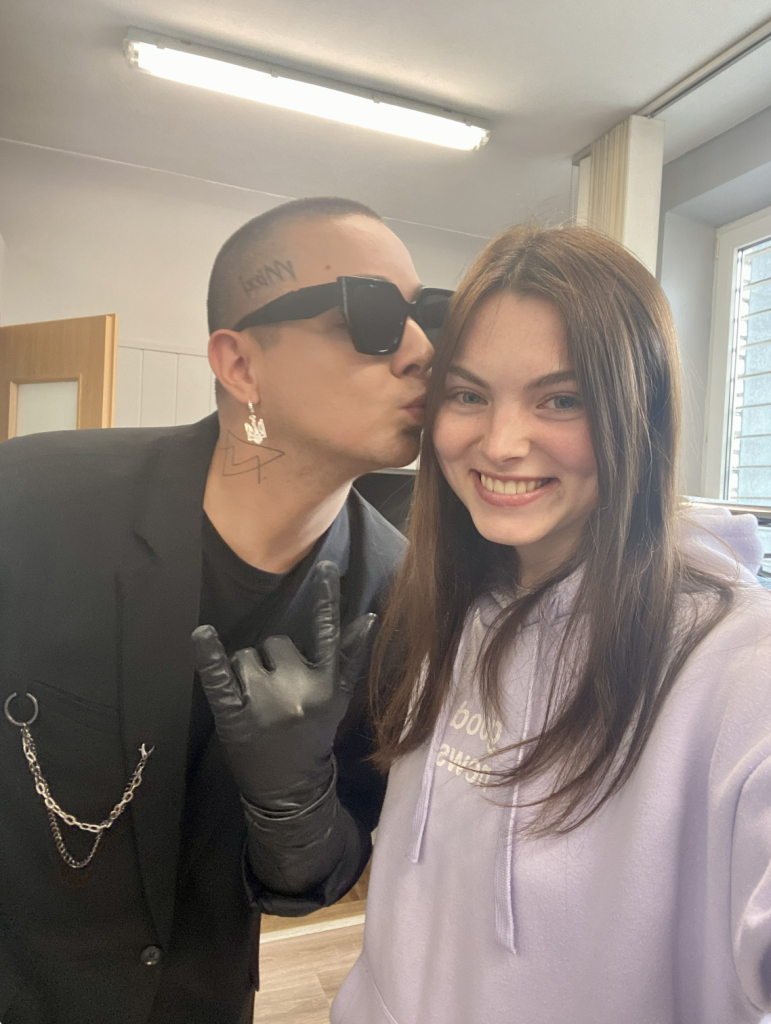
Anastasiia Polska: I channel my anger into creativity and work even harder because who else but us should pay taxes in Ukraine? Being from Kharkiv, it’s deeply distressing for me to witness the severe suffering and extensive damage inflicted upon my hometown. This pain serves as a potent motivator, driving me to strive for achievement, to make a meaningful impact, and to shape a better future for our children. So they don’t need to fight and live through the war like our generation does.
That’s why we at Bickerstaff.482 are doing a lot of projects for Ukraine, against Russian propaganda, winning awards, and then declining them to direct the winnings to the Ukrainian Armed Forces. When explosions are heard all night and colleagues’ windows are shattered, we ask each other in the morning, “How are you?”, do a roll call, and get to work. This support, teamwork, feeling of unity, and knowing your family has grown to 44 million gives that powerful boost and inspiration to do our job.
PRNEWS.IO: You’ve mentioned mentoring and leading consultations. What motivated you to take on a mentorship role, and what key insights do you share with aspiring PR professionals during these sessions?
Anastasiia Polska: Initially, I had doubts about my qualifications as a mentor due to the so-called impostor syndrome. I thought I needed at least ten years of experience before I could teach others. But then I realized that with my experience working on projects of various scales and focuses, I had a wealth of valuable knowledge and ideas to share. Recently, a beginner PR leader of a fairly well-known coffee brand approached me, expressing admiration for my work and asking for help in creating a PR strategy. That’s how I began my journey in mentorship, and it has been an incredibly enriching experience.
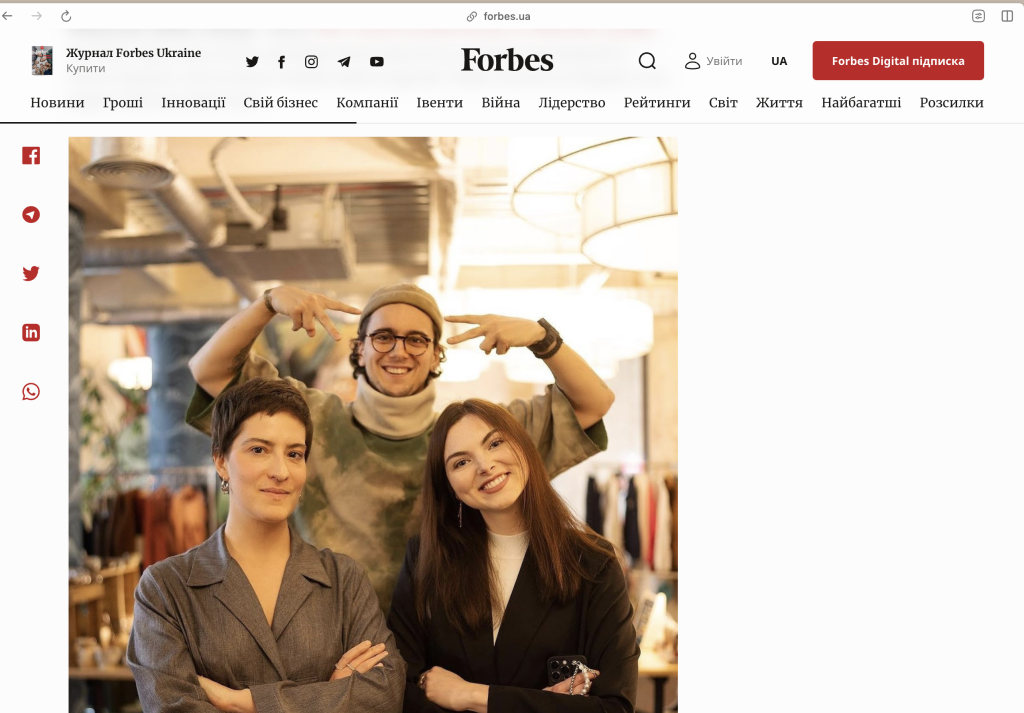
My advice for beginners in PR is to start with the basics: competitor analysis, target audience research, and media and social network reviews that the project might interest. Additionally, I believe my primary task as a mentor is not to teach how to create strategies by template but to show how to think “incorrectly,” outside the accepted norms, because usually, the strangest ideas work great for brand reputation. It’s like presenting a spoon in the style of the iPhone 15 to advertise spoonable kefir 🙂 If you season your PR campaign with a bit of creativity and add uniqueness, the media will want to write about your brand themselves.
Is your business in need of a PR makeover?
- Benefit from media coverage assistance.
- Witness a refined branding approach.
- Watch as your recognition soars.

